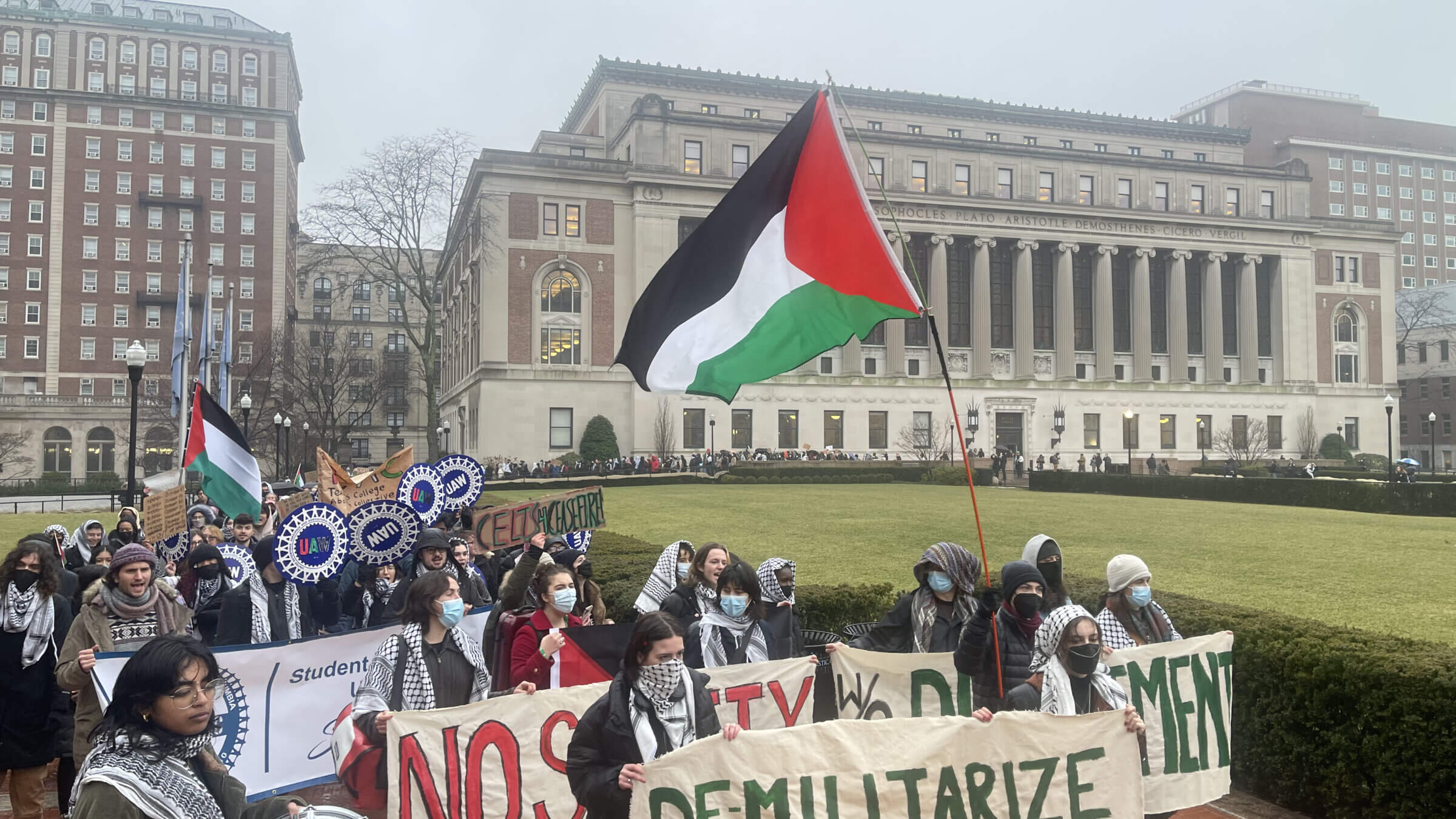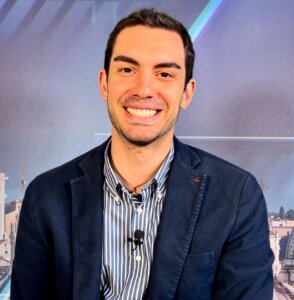Tensions mount at Columbia, where pro-Palestinian protests resume as winter break ends
Security prohibited anyone who does not have a Columbia ID from accessing the main campus during Wednesday’s protest

Pro-Palestinian protesters at Columbia University Jan. 24. Photo by Camillo Barone
A week after Columbia University returned from its monthlong winter break, so have pro-Palestinian protests — with new chants and signs and allegations that someone sprayed protesters with a noxious chemical.
More than a hundred students gathered for an “emergency protest” Wednesday at the university’s main campus, where security — as it had during previous protests — limited access to those with university identification.
Some shouted “Minouche Shafik, you must pay, medical bills are on the way!” (Shafik is the university’s president.) The medical bills refer to treatment some protesters sought after a Friday demonstration on campus. Several said they had been sprayed with a malodorous chemical that made them nauseous and ruined clothing. The New York City Police Department is investigating.
About 20 NYPD officers patrolled Wednesday’s protest, which was organized by several student groups, including Columbia University Apartheid Divest. Protesters also chanted “Columbia, Columbia, why so silent? Do you condemn Zionist violence?” and “There is only one solution: intifada revolution.”
And a new slogan appeared on at least one sign, praising recent attacks on shipping in the Red Sea, which Iranian-backed Houthi militants claim are to avenge Israel’s military campaign in Gaza. “Yemen Yemen make us proud, turn another ship around,” the sign read.
The U.N. Security Council has strongly condemned the Houthis, whose targets often have no direct connection to Israel. Two Navy SEALS died in a counterattack operation on Monday on an unflagged ship carrying weapons from Iran to Yemen.
Also on Wednesday, several student groups — including Student Workers of Columbia and chapters of Students for Justice in Palestine and Jewish Voice for Peace — jointly posted on Instagram: “WALK OUT IF YOU HAVE CLASS—NO BUSINESS AS USUAL DURING A GENOCIDE.” Columbia’s suspensions of its chapters of Students for Justice in Palestine and Jewish Voice for Peace, imposed last semester, are still in effect.
It was not clear how many students heeded the call to skip class.
















